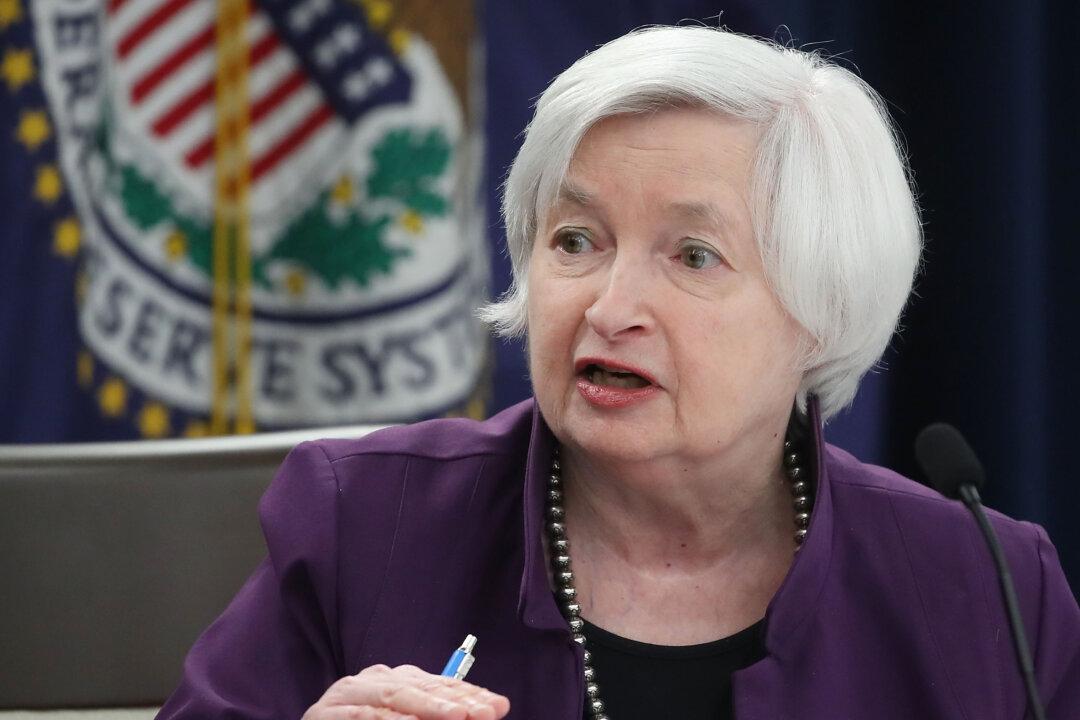WASHINGTON—Highly indebted firms are vulnerable to economic fallout from coronavirus and pose a big risk to the U.S. economy, according to Janet Yellen, former Federal Reserve chairwoman.
Before the COVID-19 pandemic, the economy was “generally in good shape” and the banking system had ample liquidity, Yellen said in a video conference hosted by the Brookings Institution on March 30.





